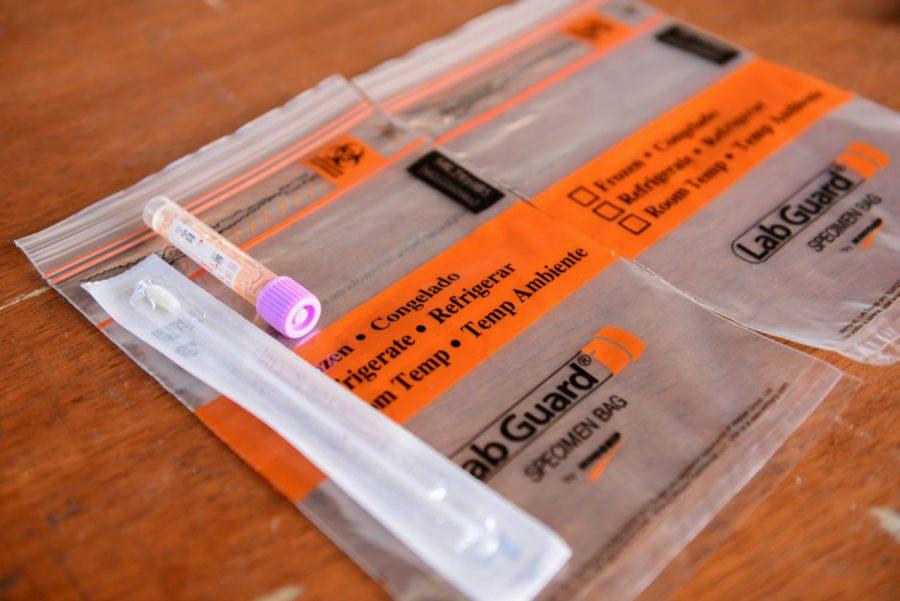Pitt adds 10 COVID-19 cases since Thursday
October 13, 2020
Pitt added 10 new COVID-19 cases, composed of nine students and one employee, between Friday and Monday. This follows an increase of seven new cases, composed entirely of students, between last Monday and Thursday.
The new test results arrive as Pitt’s Oakland campus will move to the Guarded Risk posture on Monday, if case numbers remain low. University officials announced Friday, though the presidents of both the Student Government Board and the University Senate said they are very concerned about the decision.
This case report also comes about a week and a half after the University placed three floors of Litchfield Tower B in quarantine, and the remainder of the building into shelter-in-place status, last Friday evening after an increase in virus cases among building residents over the last several weeks. Pitt “invited” the building’s roughly 360 residents to be tested for COVID-19 beginning Monday, and the shelter-in-place order ended Wednesday afternoon.
Pitt spokesperson Pat McMahon said last Friday that there had been nine positive cases reported between Sept. 23 and Oct. 2 in the Central Oakland residence hall, which is Pitt’s largest. McMahon added that 262 residents from Tower B have been tested for COVID-19 since Oct. 2, the day the shelter-in-place began, with all tests coming back negative.
Pitt’s COVID-19 Medical Response Office said health and safety measures will not change in the Guarded Risk posture.
“Everyone must continue to wear a face covering in public, maintain a proper physical distance of 6 feet from those outside of their pod and minimize new close contacts,” the office said. “Guarded Risk posture does offer more flexibility in terms of in-person learning and dining options, and more information about this transition is forthcoming.”
The University has had 311 students and 32 employees test positive since June 26, with 295 students and 31 employees recovered thus far. One of the last seven days have seen no new positive cases, according to data reported by Pitt.
There are 16 students currently in isolation housing, which is reserved for those who have either a confirmed or suspected COVID-19 infection. Pitt has a capacity of 179 beds, with the ability to add 20 more.
Tuesday’s case report is the ninth since more classes moved in person on Sept. 14. Provost Ann Cudd announced Sept. 9 that faculty members could apply to teach their classes in person if there is a “definable benefit” to in-person instruction and if an instructor’s dean or regional campus president approves teaching plans. Pitt has been using the new Flex@Pitt teaching model, which allows students to experience classes “in person, remotely, synchronously or asynchronously.”
Cudd announced Sept. 30 that the Flex@Pitt model will continue into the spring semester as the pandemic continues, and the spring will have an adjusted schedule.
Pitt has implemented a systematic, random testing strategy, where it has said it will test several hundred students each week on Mondays and Wednesdays. Out of 271 students without COVID-19 symptoms randomly tested last Wednesday, there was one positive case, not changing Pitt’s total prevalence rate of 0.38%.
The University has implemented a variety of new policies due to the pandemic, though some community members question whether the safeguards are sufficient. All students were asked to shelter in place for seven days before and after arriving in Oakland, though officials said Pitt would not track whether or not students had completed the shelter-in-place period. Pitt has also planned testing of students to monitor the virus’s spread, required students, faculty and staff to complete COVID-19 training and imposed strict penalties for violations of health guidelines.
Kenyon Bonner, the vice provost and dean of students, said student organizations who host a party or event can face suspension, and students hosting large parties can be suspended. Students living on campus who attend large parties can have their housing suspended for the semester, and students living off campus can be switched to persona non grata status, preventing them from entering University buildings or property.



